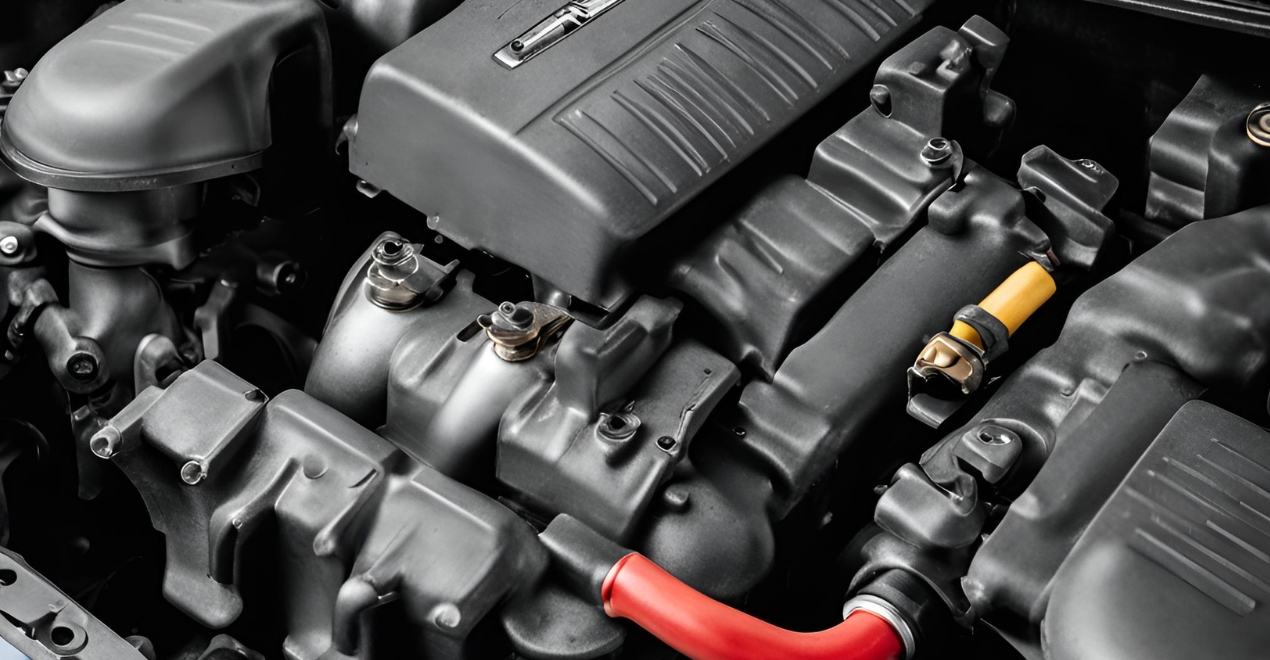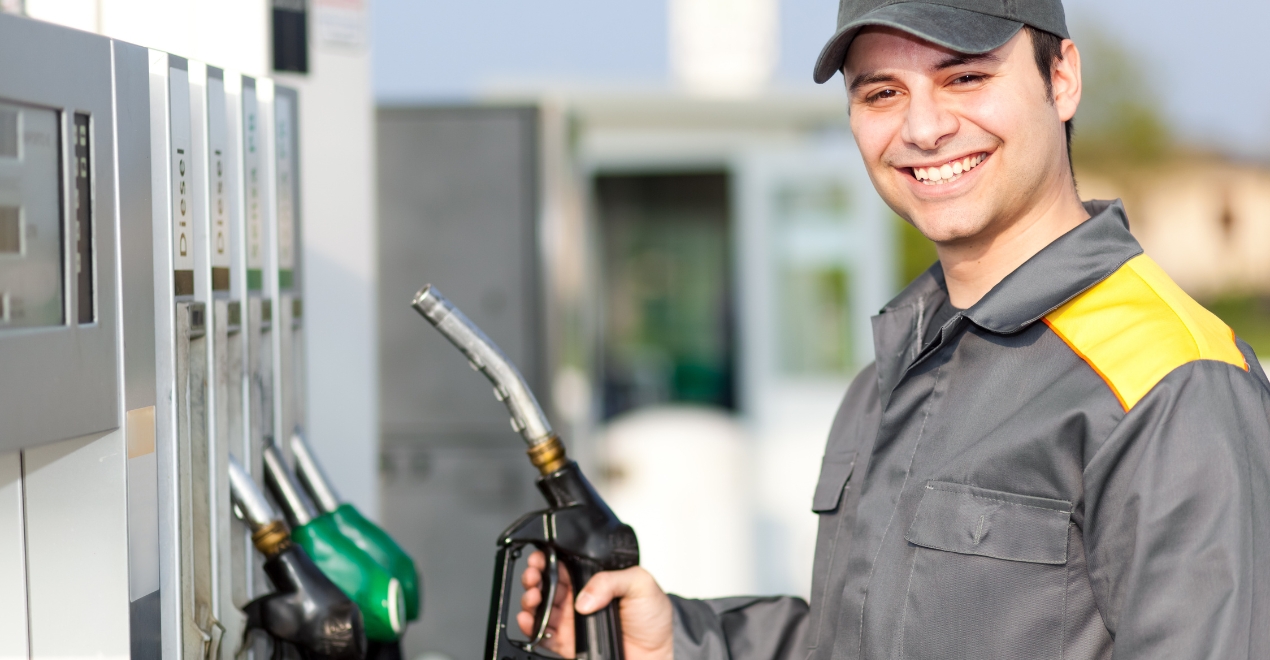When you pull up to a gas station, you are typically presented with a few choices: regular, mid-grade, and premium gasoline. Each of these fuel grades has a different octane rating, which is a measure of the fuel’s ability to resist “knocking” during combustion. Knocking is a rattling noise that indicates inefficient combustion and can potentially damage your engine. Regular gas typically has an octane rating of 87, mid-grade around 89, and premium gas usually ranges from 91 to 93. Experience peace of mind with Crossroads Helpline’s expert advice on fuel choices and car maintenance. Ensure your engine’s longevity by consulting our specialists today!
The higher octane rating in premium gas means it can withstand higher compression before igniting. This is particularly beneficial for high-performance engines that are designed to operate at higher pressures and temperatures. These engines often have higher compression ratios or turbochargers and are finely tuned to extract maximum power and efficiency from each drop of fuel. The question many drivers face is whether using regular gas in an engine designed for premium gas can cause harm or whether the benefits of premium gas are worth the extra cost.
Table of Contents
ToggleThe Impact on Engine Performance and Longevity

Using regular gas in an engine designed for premium can have several immediate and long-term effects on performance and longevity. High-performance engines rely on the anti-knock properties of premium gas to maintain smooth and efficient operation. When regular gas is used, the lower octane rating may not sufficiently prevent knocking. This knocking is not just a minor inconvenience but a symptom of inefficient combustion that can lead to engine damage over time. Repeated knocking can wear down critical engine components, such as pistons, bearings, and cylinders.
In addition to potential physical damage, using the wrong fuel can also degrade performance. The vehicle’s computer system may detect the knocking and adjust the engine timing to compensate. While this might prevent damage, it can also result in reduced power output and decreased fuel efficiency. The engine is essentially not running optimally, which defeats the purpose of having a high-performance engine. Over time, this can lead to more frequent maintenance needs and potentially costly repairs.
Fuel Efficiency and Economic Considerations
Many drivers opt for regular gas to save money at the pump, but this can be a false economy in the long run. While the immediate savings are apparent, the long-term costs can add up. Using the incorrect fuel can reduce fuel efficiency, meaning you might need to fill up more often. Furthermore, the potential for engine damage can lead to higher repair costs, offsetting any initial savings.
Moreover, engines designed to run on premium gas often have better overall efficiency when using the correct fuel. Premium gas allows the engine to run at higher compression ratios and temperatures, which can enhance fuel combustion and improve mileage. Therefore, although premium gas costs more per gallon, the improved efficiency can mean fewer trips to the gas station and better overall mileage. Additionally, the cost of repairs and the potential decrease in the vehicle’s resale value due to engine wear should also be factored into the economic equation.
The Role of Engine Knock Sensors

Modern vehicles are equipped with sophisticated engine control units (ECUs) that include knock sensors. These sensors detect the onset of knocking and adjust the engine’s operation to mitigate it. This might involve retarding the ignition timing, which can prevent knocking but also reduce engine efficiency and performance. While these systems are effective at protecting the engine from immediate damage, they are not a perfect solution.
The constant adjustment by the knock sensors can lead to suboptimal performance and increased wear over time. The engine is essentially compensating for the lower octane fuel, which can strain its components and reduce its lifespan. While the knock sensors can prevent catastrophic damage, they cannot eliminate the inefficiencies and potential long-term issues caused by using the wrong fuel.
Environmental and Emission Concerns
Another important consideration is the environmental impact. Engines running on the wrong type of fuel can produce higher emissions due to incomplete combustion. Incomplete combustion occurs when the fuel does not burn as efficiently as it should, resulting in the release of more pollutants, such as carbon monoxide, hydrocarbons, and nitrogen oxides. These emissions contribute to air pollution and have harmful effects on both the environment and public health.
Using the correct fuel can help ensure that your vehicle runs as cleanly as possible. High-performance engines designed for premium gas often have advanced emission control systems that rely on optimal combustion. Using lower-octane fuel can compromise these systems and lead to higher emissions. Therefore, while the cost savings at the pump might be tempting, the environmental costs should also be taken into account.
Manufacturer Recommendations and Warranty Considerations
Automobile manufacturers provide specific fuel recommendations for a reason. These recommendations are based on extensive testing and are designed to ensure optimal performance, efficiency, and longevity of the vehicle. Ignoring these recommendations and using a lower-grade fuel can not only lead to the issues discussed above but can also affect your vehicle’s warranty.
Most vehicle warranties include clauses that specify the use of recommended fuels. Using a lower-octane fuel than recommended can void your warranty, leaving you responsible for any repairs or damages that occur as a result. This can be particularly costly if engine damage occurs due to prolonged use of the wrong fuel. Therefore, adhering to the manufacturer’s fuel recommendations is crucial not only for maintaining your vehicle’s performance but also for protecting your investment.
Is Premium Gas Always Necessary?

While premium gas is crucial for high-performance and luxury vehicles that require it, not all vehicles need premium gas to run efficiently. For many standard vehicles, regular gas is perfectly adequate and using premium gas will not provide any significant benefits. It’s important to refer to your vehicle’s owner manual to determine the recommended fuel grade.
For vehicles that can run on regular gas, using premium gas may not improve performance or efficiency. In fact, it can be an unnecessary expense. However, for vehicles that require premium gas, it is essential to follow the recommendation to avoid the issues outlined above. Understanding the specific needs of your vehicle and using the appropriate fuel is key to maintaining its health and performance.
Conclusion: The Cost of Skimping on Premium Gas
In summary, while the immediate savings from using regular gas instead of premium might be appealing, the long-term costs can outweigh these savings. Using the wrong fuel in a high-performance engine can lead to engine knocking, reduced efficiency, increased emissions, and potential engine damage. It can also void your warranty and lead to higher repair and maintenance costs. Moreover, the environmental impact of increased emissions should not be overlooked.
Adhering to your vehicle manufacturer’s fuel recommendations is crucial for ensuring optimal performance, efficiency, and longevity. While it may cost more at the pump, using the correct fuel can save you money in the long run by avoiding costly repairs and maintaining your vehicle’s resale value. Therefore, if your vehicle requires premium gas, it is worth the investment to ensure it runs smoothly and efficiently.

